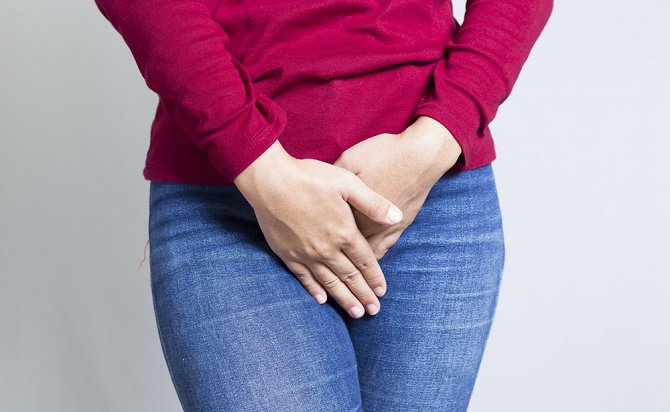Of course, not all women are walking around with vaginal itch, but many do suffer from this. Vaginal itch is a common symptom experienced by women. Venereal diseases such as common vaginal infections can be some of the reasons, and they can be benign or a cause for concern. For that reason, it’s important to figure out what’s going on.

While you don’t have to run to the doctor for every unusual vaginal itch, it’s recommended to make an appointment if your symptoms persist for more than two days or if, along with itching, you have unusual bleeding or strange sores in the area.
10 causes and remedies for vaginal itch
Here are 7 possible causes of vaginal itching, along with the best tips to relieve each one of them.
Yeast infection
We’ll start with the most obvious: yeast. These infections are so common that three quarters of women have one at some point. The main symptom is extreme itching, along with thick, white odorless discharge. It’s recommended to at least call your doctor to discuss your symptoms instead of going to the pharmacy and buying an over the counter treatment. If you self-treat and it’s not a yeast infection, you could worsen the problem.
Trichomoniasis
This common venereal or sexually transmitted infection (STI) is caused by a parasite called Trichomonas vaginalis. The Centers for Disease Control and Prevention (CDC) state that, while 3.7 million people are infected (most of them women), only 30% know it. That’s because it often doesn’t cause any symptoms.
But when it does, it causes itching, burning, changes in discharge, or white cracks in the skin. You might assume it’s a yeast infection and treat it with an over the counter antifungal, and it doesn’t work. Then you try a vaginal douche (which is never a good idea), and make it worse. That is one more reason to see your doctor first. If the tests are positive, it’s very easy to treat with antibiotics, but the problem is that you and your partner have to be treated; otherwise, one of you could easily infect the other again.
Irritation
Irritation caused by certain fabrics or products is one of the three most common causes of vaginal itching. Doctors often advise patients on good vaginal hygiene. That includes not using scented pads on a daily basis (and not using too many daily pads in general), avoiding scented soaps for cleaning the genital area, and absolutely no vaginal douches or scented feminine sprays or powders. These can make the problem come back; scratching can lead to infection, making things worse. Plus, these can also change the pH of the vagina, which makes it more susceptible to an infection called bacterial vaginosis (BV).
In addition, your vagina needs to breathe. Suffocating it with synthetic underwear traps moisture against the skin, which can be an irritant. Switching to cotton underwear is recommended. And make sure you wash gently with regular soaps that aren’t neutral, without fragrance and only the exterior.
Bacterial vaginosis
Although this vaginal infection can cause some itching, more often the characteristic symptom of BV is foul smelling discharge. If you call your doctor and explain that it’s itching a lot, he or she will most likely think it is a yeast infection, trichomoniasis or irritation. So make sure to take note of your symptoms, including details about discharge, which can go a long way in indentifying your problem.
Eczema and psoriasis
Eczema and psoriasis are skin diseases caused by an autoimmune condition. These diseases can cause itching and redness in the genitals. Corticosteroids as a prescription medicine and natural remedies like oatmeal baths can alleviate the itching. If you don’t feel symptom relief in one week, seek advice from a gynecologist.
Herpes
You might think that you could detect genital herpes, but not everyone gets large sores that are easy to see. It’s possible that you just feel a little itching or pain when urinating, but the symptoms might not be as serious as people often think. People try to treat herpes with a topical yeast infection treatment but it doesn’t work.
Lice
There is also the possibility that if you feel itchy in your intimate areas, you could be infected with pubic lice. For this, you will need to get a shampoo or appropriate treatment for lice, but removing the pubic hair could be a faster and more effective solution.
Shaving
When you shave the genital area, it might feel smooth right then and there, but when the hair starts to grow back, the itching can be unbearable. In fact, in a 2014 study published in the American Journal of Obstetrics and Gynecology about problems that women experience when they remove their pubic hair, 20% said that they had felt severe itching. Women know their bodies well and if you know that shaving is irritating, it’s better not to do it. One nicer way to remove hair from this area could be waxing.
Vulvar lichen sclerosus
Lichen sclerosus is a chronic inflammatory skin disease and its primary symptom is irritation in the vulva area causing white splotches to appear on the skin. This is a disease that must be diagnosed by a specialist and properly treated with prescription medication.
Hormones
If you are post-menopause, the source of your itching could be that your vagina in undergoing changes in hormones. In other words, a decrease in estrogen can thin the vaginal mucus. But don’t worry, there are natural ways to treat this.
For more information about how to naturally treat some infections in the vaginal area, we invite you to read our articles:
- What is abnormal vaginal discharge and how to prevent it
- Home remedies to treat vaginal odor
- 10 home remedies for vaginal infections
